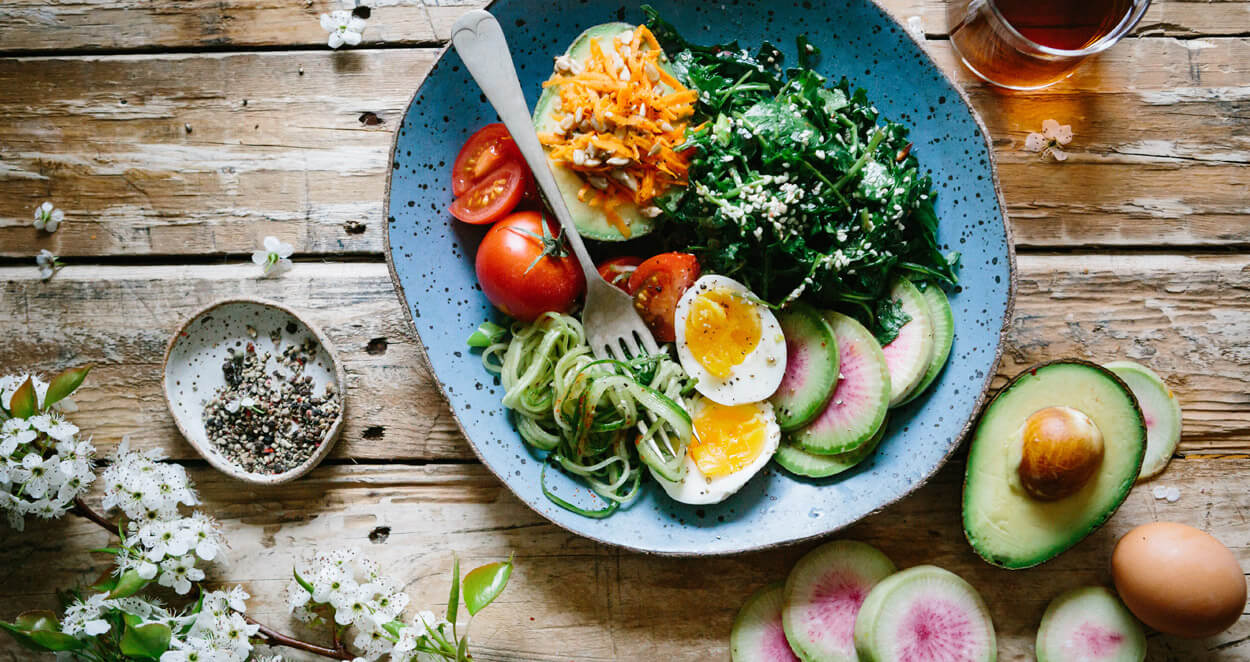Food During Pregnancy

20 Oct 2019
Eating properly is extremely important, and even more so when you are expecting. You’re growing another human being inside of you so it’s critical to make sure that you’re getting all the right nutrients, vitamins, and minerals to develop a happy and healthy baby.
Eating for two doesn’t mean you need to double up on every meal. In fact, in your first trimester, you don’t require additional kilojoules. You’d only need an additional 1 400kJ each day during your second trimester, and an extra 1880kJ in your third trimester. This means an additional snack or small meal each day.
What you eat is just as important as how much you eat. Eating a varied, balanced diet ensures that you get all the nutrients you need and gain the right amount of weight during your pregnancy.
Carbohydrates
Choose low GI, wholegrain carbohydrates such as brown rice and wholegrain breads. These both regulate your blood-sugar and energy levels as they are digested and absorbed at a much slower rate, and they reduce the risk of constipation.
Protein
Protein is responsible for much of your baby’s growth and development, so make sure you are getting enough from sources such as chicken, eggs, fish, and lean meat.
Fish is a great source of protein and vitamin D, as well as fatty acids that aid in the development of your baby’s brain.
Calcium
Calcium is important for the development of your baby’s teeth and bones. It’s recommended that you have at least 1 000mg of calcium each day. Some great sources of calcium include almonds, eggs, dairy, and sardines.
Fruit and veg
Fruits and vegetables are packed with essential nutrients that you need for your growing baby, such antioxidants, vitamin C, and folate (vitamin B9). Folate is very important for your baby’s brain and spine development, and research shows that supplementation with folic acid (the synthetic form of folate) before you get pregnant may help prevent birth defects, as neural tube defects usually develop very early on in a pregnancy.
It’s recommended that women who plan on becoming pregnant take 400 mcg of folic acid daily. Foods that are high in folate include citrus fruits, asparagus, leafy greens, and legumes.
Fats
You don’t have to completely cut out butter, margarine and oil, but consume them sparingly. If possible, rather get your fat intake from foods with ‘good’ fats, like avocados, nuts, seeds, fish and olive oil.
Make sure that all of the food you eat is fresh and properly prepared for both you and your baby: you want to avoid food poisoning at all costs.
You don’t have to rely on the same foods every day for nine months. Try mixing things up. By doing so, you deliver a healthy variety of nutrients to your developing baby.